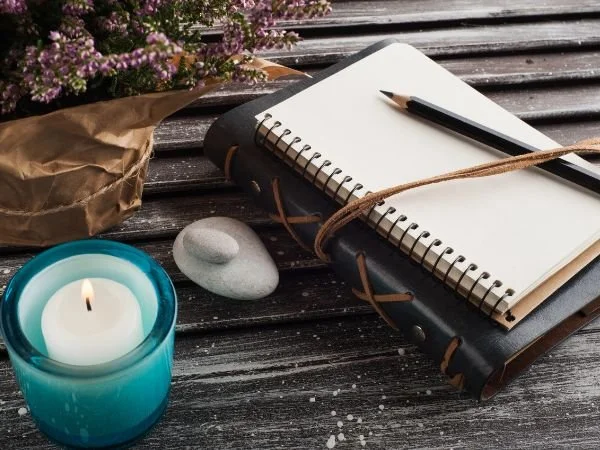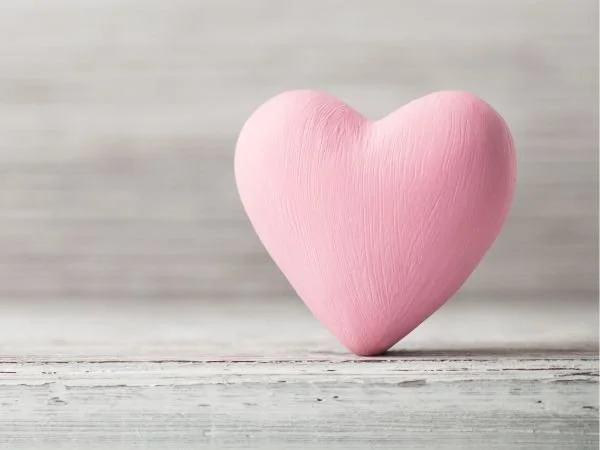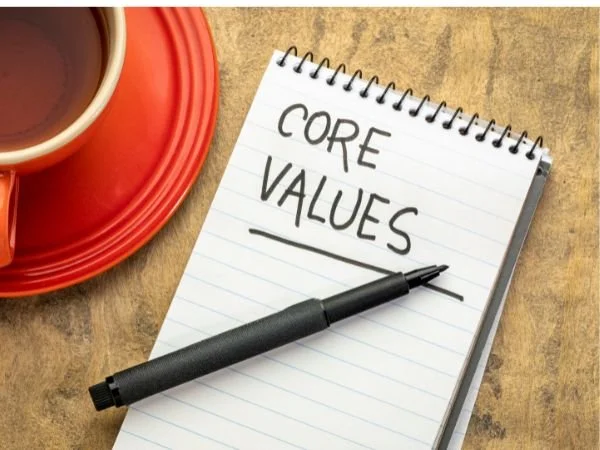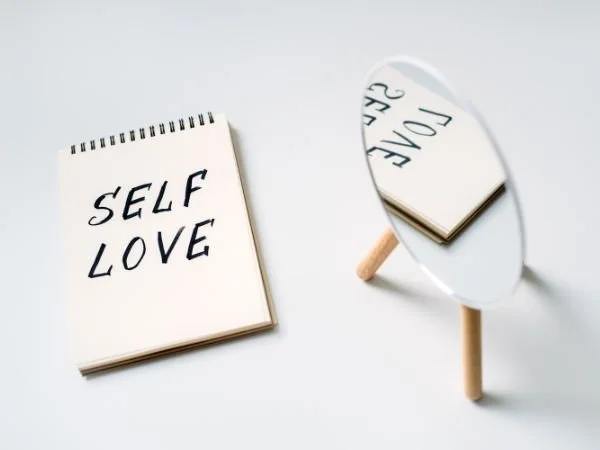52: Why Feeling Anger & Rage is Important & How to Release Your Anger & Rage in a Good Way
Anger and rage are natural feelings and are important to feel for your healing journey and your mental health. Many people try to numb their triggers, bottle up their rage, and manage their angry feelings inside from a young age.
This post contains affiliate links to some of my favorite tools and resources. As an Amazon Associate, I earn from qualifying purchases. Full terms & conditions here.
In this episode, I’m going to define anger and rage and talk about the importance of feeling your anger and rage, why you shouldn't fear your anger and rage, why so many people are afraid of these emotions, and practices and suggestions for how to release your anger in a healthy way and how to release anger without hurting anyone.
Journal Prompts 🖋️
Referenced Episodes 🎙️
Book Recommendation 📚
Adult Children of Emotionally Immature Parents: How to Heal from Distant, Rejecting, or Self-Involved Parents by Lindsay C. Gibson
Timestamps ⏱️
0:00 Introduction to Episode
2:54 Why it’s important to feel your anger and rage
9:27 Why society is afraid of its anger and rage
15:43 How to feel your anger and rage in a good way
Have you followed and left a review for New View Advice?
Let me know what you think of the podcast! Podcast followers and ratings help bring new listeners to the show, as well as help me to continue creating content. So if you enjoyed the show, I’d love to ask you to follow and leave a rating on your podcast platform by:
Head to New View Advice on Apple or Spotify
Click Follow on your podcasting platform
Scroll down (or when promoted) click the 5 star rating!
-
This podcast was transcribed by an AI tool called Otter. Please forgive any typos or errors.
Amanda Durocher 0:00
Welcome to New View Advice. I'm your host, Amanda Durocher. And I invite you to join me here each week as I offer advice on how to move through whatever problem or trauma is holding you back from living life to the fullest.
Let's get started. Hi, beautiful souls. My name is Amanda and this is New View Advice.
If you're new here, this is a healing centered advice podcast where I offer guidance for the healing journey. I believe you have all the answers you seek, you just may need a new view along the way. Thank you for joining me for today's episode. Today's topic is anger and rage. And today we will be talking about anger and rage because I believe that society has led us to believe that anger and rage are dangerous emotions, that these are emotions that we shouldn't feel that these are emotions that we should hide away from the rest of the world. And I'm here to tell you that I completely disagree. I think that your anger and rage are sacred. I believe that your anger and rage are valid. And I believe that anger and rage are very important emotions to learn to embrace and how to feel for the healing journey. So in today's episode, I'm going to talk about why it's important for you to feel your anger and rage. Why society is so scared of their anger and rage. And I'm going to teach you how to feel your anger and rage in a good way and how to come in relationship with your anger and rage rather than fear it. So today I'm going to use anger and rage interchangeably. But to me the difference between these emotions is that rage can be more extreme. I think sometimes we feel rage rather than anger because we have bottled up our anger and as it piles and it gets higher and higher and higher. I'm viewing it as a pile of dirty clothes. So if your anger is a dirty shirt, and you just keep piling it higher and higher, it can become rage. I looked up the difference before listening to this episode. And some people define rage as destructive. And I just want to say that I believe anger and rage can both be destructive. But it doesn't have to be a bad thing. Because your anger and rage have the power to deconstruct and destroy false belief systems. Your anger and rage has the power to destroy codependent patterns, and your anger and rage have the power to destroy that which is no longer serving you which is beautiful, and which is important when we are healing. So as I mentioned, I'm really excited to dive deeper into this topic. I have talked about anger a lot this week. Actually, I talked about it with a close friend. I've also been feeling a lot of anger and rage and I also talked a bit about anger and rage in the last episode episode 51 with Andrea Giles so I recommend you take a listen to that episode as well because that was a great interview. And if you want to learn more about anger and rage I do touch on this topic in that episode. So let's jump on in to today's episode and talking about why anger and rage are important feelings for you to feel.
Amanda Durocher 2:54
So why is it important for you to feel your anger and rage? Simply put, it's because these are human emotions and they are part of the human experience. Feeling angry is human and there's just nothing wrong with your anger. I talked about the grieving cycle a lot on this podcast. I believe that we grieve many times throughout our lives we don't just grieve when someone dies. We grieve when we have heartbreak we grieve during New chapters. We grieve when relationships and we grieve when we lose our job. We grieve when our children go to college we grieve when we move to a new city. We grieve many times throughout our lives. And I mentioned this because anger is a stage of the grieving process. So the five stages of grief are denial, bargaining, anger, depression, and acceptance. And I mentioned this again, because when you are moving through the grieving cycle, you will feel angry, it's natural, and it's human. And I believe that it's important for us to start embracing our anger and learning how to be in good relationship with our anger because there's so much power behind your anger. I also want to mention that throughout your healing journey, anger and rage will arise and it is very natural. If you have experienced infidelity and someone has cheated on you. It is very natural to feel angry. If you have been sexually assaulted or raped. Feeling angry is a natural part of the healing journey. If you had parents who did not show up for you the way you deserved as a child, it is natural to feel angry. If you have ever put your trust in somebody who proved that they were untrustworthy, you will feel angry, and all of that is okay. And along the healing journey. There are many many other reasons to be angry and those are just a few examples. But as you are healing, you will feel angry and that's okay. It's not anger itself. That is the problem. The problem is that most people have never been taught how to have a healthy relationship with their anger and how to feel these feelings in a safe and appropriate at Manor, your anger and rage are communicators. It's one of the main reasons why feeling these feelings is empowering, is healing and is important for you along your healing journey. To me, your anger and rage are always trying to communicate something to you. anger and rage do not want to be ignored. They're trying to show you something is off in your life or that a boundary has been broken, or that there is something to be alert about, or that there has been a red flag that maybe you ignored. They are communicating to you pay attention, something is not right here, something is off, I am triggered. Look at this. And there's nothing like anger and rage to get you to look at it real quick. if you so choose. Many of us use coping strategies to cover up our anger and rage. So you may find yourself getting angry. And instead of feeling your anger and rage or beginning to dive deeper into it, maybe you pick up a drink, maybe you smoke some weed, or maybe you start projecting it on to someone else. Maybe instead of sitting with your anger and rage, you start yelling at someone, and then you fall into a guilt cycle. And then you never really look at why that anger and rage arose. I find that many people use these numbing, or these coping strategies these ways to numb I know in my life I used to use alcohol, alcohol was a big way I used to cover up my anger and rage. And I personally didn't form a healthy relationship with my anger and rage until I went sober. I actually had this experience about a month after I was sober. I don't know if I've told the story on the podcast. But I had this experience a month after I went sober where one of the people who raped me in my teens was celebrating his engagement. And his birthday. And I came across this because somebody who I was acquaintances with and I used to follow on social media was at his little party to celebrate all this stuff. And the rage that came over me was all consuming. And I didn't have alcohol anymore to cover it up. So it was an all consuming rage. And I believe it was so strong because in that moment, I felt angry. But it was also all the rage I had covered up when I was triggered and would pick up a drink instead. So I wasn't just angry that this guy was getting married and was having fun. While I was like sober and depressed on the floor. I was angry that I couldn't pick up a drink. I was angry that this is where I was I was angry that I was even thinking about this. It was all this anger consumed within me. And I was livid. And I didn't handle it very well at the time, I'll be honest, I think I screamed. And I ended up smashing a lot of plates. I actually had bought plates previously at Walmart to smash when I was angry. And this was the perfect time to do that. But in that moment, I learned that I was not prepared for my anger and rage. Because I didn't go straight to smashing plates, I wasn't able to handle it. Instead, I went off the handle, I started screaming and throwing things and grabbing pillows and I was all consumed because I didn't know how to be in relationship with these emotions, and I was overtaken by them. And that was scary for me. So part of my sober journey was learning to be in good relationship with my anger and rage. To me, I think of anger and rage as if an engine light is on in the dashboard of your car. So sure, you can drive for a while. So your check engine lights on. And you can drive for a while. But if you ignore the problem, the problem will get bigger and bigger. And then all of a sudden, your car might break down and you bring into the shop and they're like how this happened. And you're like well the check engine light was on for a month, but I completely ignored it. That's your anger and rage. You don't want to ignore them because then you can end up having a full explosion like I did with that story I told if you start to look at these feelings sit with these feelings be with these feelings when they arise in the moment, we won't have one of those big mental breakdowns that can feel really scary for us and for our awareness. I also believe that anger is connected to our power. So many of us have come into relationship with anger when we are coming into relationship with how powerful we are. Many of us have experienced situations where we felt as though our power was taken from us or where we gave away our power and part of the healing. Part of the reckoning with our own power is allowing ourselves to feel the pure sacred anger of feeling powerless. And that's why it is so important for you to begin feeling your anger and rage.
Amanda Durocher 9:27
I also wanted to talk about why many of us are afraid of our anger and rage because it's very valid that many of us fear these emotions. So I think there are a few reasons that we fear these emotions. So one of the reasons we fear these emotions is that for many of us anger and rage have been used against us. So many of us had parents or caregivers or teachers or adults or even other children in our youth who used her a You're in rage against us who hurt us with their anger and rage. We were emotionally abused, physically abused, sexually abused, we were screamed at, we were in situations where we were left feeling unsafe because somebody else wasn't in good relationship with their anger and rage, and they took it out on us. And that's painful. And because of that many of us fear our own anger and rage, because we do not want to do that to someone else. And we see what anger and rage can do. And it terrifies us, that's really valid. Another reason is that maybe we're not in good relationship with our anger and rage. And we've used it against other people. I know that's true in my life, I used to fear my anger and rage because it would come up. And I would often end up yelling at my partner, I think the heavens, he's still with me. And I would fear that I was turning into my father, I would say that in my youth, my father was the one who was not in good relationship with his anger. And because of that, I grew to fear, anger and rage. But I also did not know how to be in good relationships. So anytime I would get angry and yell at my partner, Evan, I would fear I was turning into my father. So it was like a cycle, where I would paint it up because I was afraid of using it, and I was afraid of it. And then it would lash out. And then I'd feel overcome with guilt. And I think many of us can get in this cycle of painting it up, lashing out feeling guilty, feeling negative about ourselves, hating ourselves for how it came out. So it can cause us to be in a cycle of not sitting with our anger and rage and continuing to fear it. And another reason I think many of us fear, anger and rage is just that nobody taught us how to be in good relationship with it. And they've been labeled bad emotions. It's like how before this episode, I googled the word rage. And it is associated with distraction, but in a negative sense, from what I read from my very brief research, rage doesn't have a good reputation. A lot of people view it negatively. And I'll just say that I believe rage, just like anger is very sacred. As I've mentioned. I know for me, it was empowering for me to feel the pure rage of being raped. It's part of the healing process to allow myself to feel the immense rage that I didn't get to feel in the moment. I've mentioned it before in past episodes, but when I was raped, I almost died as well. And yeah, that makes me really angry. I'm getting to being at peace with it. But yeah, it's not a fun experience to live through. And it's not a fun experience to revisit. And yeah, it was really fucked up. My rage is valid. And it's not anger, it's rage. Somebody thought they had more of a right to my body than I did. I don't fucking think so. Yeah. I was angry. Some of you listening, maybe you were cheated on. Maybe you've cheated on your partner. Maybe you had a parent who emotionally abused you physically abused you. Maybe you were bullied as a kid. All those experiences? Yeah, rage is a real emotion you're going to feel because it is fucked up what happened? And it's not fair. And unfortunately, after these things happen to us, they're ours to deal with. And what helps us to heal is being with our anger and rage, and not running away from it. We deserve to be angry, and to not be shamed for it. And that's another reason why I think people fear their anger and rage. They were told these were bad emotions. I know for me, when I was a child, I remember ones getting in trouble because I got really angry and I got put in a corner by myself for the rest of the day. So I was punished for having a natural emotion. And so I was taught in that moment. It is not safe to feel my anger and rage at school, it is not safe for me to feel my anger around others, even though what would have been helpful was for somebody to talk me through my anger, and how I could have healthfully felt that emotion in that moment. As I mentioned, many of us have been punished by others anger and rage. And also many of us have been punished for our anger and rage. So of course, we fear these feelings. They can also feel all consuming and that can be really scary. You don't want to lose control of your body of this situation. And though we're never really in control, the more you become in good relationship with these emotions, the more you'll be able to stay grounded when they arise. When I talk about anger, I like to give the example of a lion I believe that our anger can be like a lion. And a lion can seem really vicious and scary if it's in a cage because it'll lash out and bite you. And it's angry. But if we let a lion be in its natural environment, and we let it run free and we let it roam, it might roar and run really fast, but it's going to do its own thing. It's free to be free. The lashing out comes from being caged up And we cage up our anger because we're afraid of it. But the act of caging it is actually what creates something that ends up being scary. anger and rage are natural. There's nothing wrong with you. If you feel these emotions, it just means you're human. And many times it means you're healing. So many people have never even come into contact with their own anger. It's only through healing that they begin to tap into these emotions because they've been bottled up for so long. Because I know this, I know how scary it can be to come into contact with these emotions. And it can feel like there's something wrong with you. I want to offer some ways to be in good relationship with your anger and rage.
Amanda Durocher 15:43
So just like most of the healing journey is very personal. Coming into good relationship with your anger and rage is also a very personal practice, I'm going to suggest a few ways that I've found to be in good relationship with my anger and rage. But I just want to stress don't do anything that makes you uncomfortable. If you don't like some of these ideas, don't force yourself to do anything. As always take what resonates and leave what doesn't. First, I want to say that I think the first step to being in good relationship with your anger and rage is to accept that it's okay to be angry. I think that so many people stop at this step. So many people aren't even willing to accept that these are very human emotions, and that it's safe to feel these emotions. So I invite you the next time you feel anger or rage arise, to just tell yourself that it's safe to have these emotions. Instead of judging yourself or starting to criticize yourself, or immediately picking up a coping strategy, something that would help you numb these, I invite you to just tell yourself, it's okay to talk to yourself, I am angry. It's okay. It's okay for me to feel this. This is uncomfortable. But it's okay, it's safe for me to be angry. Try reminding yourself that it's safe. And also that you wouldn't be human. If you didn't have these emotions. They're very human emotions. So it's okay that you're feeling them. And so Second, I want you to stop ignoring your anger, begin to track it. Where do you feel anger in your body? Do you feel it in the same place every time? Do you feel it in different places, I want you to literally write down every time you feel angry. So if you're someone who's new to journaling, I am going to offer journal prompts at the end of this episode, because I think journaling is a great practice for processing your anger. But a great journal practice to begin with is to just jot down in a journal or your phone, I'm a fan of pen to paper. But if writing it in your phone is what's going to get you to do it. I'm a bigger fan of you just starting to do self care practices, you're just starting to feel your feelings. So whatever makes it easiest for you is what I want you to do. And I want you to just start becoming aware of the anger. When did it arise? What triggered it? Do you feel this often? Where do you feel it in your body just begin to track it. And that will help you to begin processing it safely. And when anger arises, it often wants to be moved. So it's a very active feeling I want to say. So for me, I often feel it in a place in my body and it wants to move out of my body. And I also want to say about your anger and rage. They don't last as long as you think they will. Many times when we have anger and rage as well as sobbing or crying for some people, they think they'll never stop crying, you will stop feeling these feelings, they will not last forever. So if you're someone who's used to shoving these down, remind yourself that you will not feel these forever. So here are some ways that you can start processing your anger safely. And as I mentioned, anger wants to move, it wants to move out of your body and it wants to communicate with you. So while you're doing these processes, pay attention to the thoughts in your head and how oftentimes the dialogue begins to change as you move the anger. So for me recently, I was feeling really angry at somebody who I put trust in who proved to be untrustworthy. And this came up while I was working on my memoir, this anger was so intense. It was something I thought I had processed, but a new insight had arisen. And I was angry. And I allowed myself to write it. So it's a chapter that will probably never make it into my book. But I've rewrote about my experience. And as I wrote, The thoughts changed. It didn't just say at like eff this person. It started with that, if we're honest, yes, I am a healing person. But it does not mean I don't drop F bombs in my head regularly just so everybody knows, you know, my thoughts are f this person f them after this. And then it starts to change and then I start to get more insights and the anger starts speaking to me through my writing. And so my first piece of advice to you would be to write about your anger when you feel angry, pick up a pen and paper and just start getting it out. Get out all those thoughts you're having get out all those angry thoughts do not filter yourself. And you might think I can't write this, this is a really mean thing, write it down, write it down, write down all the angry thoughts, all the mean thoughts you have in your head, write them down, it will start to move and processes energy. It's stuck in your body until you move it, and writing will help you to move it. I also think a lot of us feel as though we had our voices taken from us. And because of this, I have found that using my voice, when I'm angry, to be very therapeutic, we don't want to yell at someone else. I believe that anger is an inside job. It doesn't mean to point it within it, it means that it's inner work. So I'm not a fan of taking your anger and putting it outside yourself and yelling at someone, even if that person did something really cruel to you, I don't believe that your anger should be used against that person. I believe that your anger needs to be processed, and then you'll be able to speak what needs to be said. But I don't believe in yelling at one another. I don't think anything gets anywhere. Through yelling, I believe that we need to process these feelings. And then we're able to communicate healthily, our boundaries and what needs to be set. I have yelled at many people throughout my life. And it has never gotten me what I hoped it would get me. It has only been through healthy communication, that real lasting change has happened. I've made people afraid of me by yelling at them. I've lost friends who weren't good to me by yelling at them. I've created riffs by yelling at people. And I've created a lot of self hatred, by yelling at people. But I believe that using your voice is a really healthy way, you just have to find healthy ways to use it. So for me, I love to scream, all screaming to pillows, or I love to scream in my car, I find my car to feel really safe, because it's an enclosed space that I'm just in. And I'll either scream in my driveway, or I'll find an empty parking lot. And I'll just Lau myself to scream at the top of my lungs. And the anger moves. It moves through my voice. It's a healing practice to use your voice. So many of us feel as though our voices were taken from us at really critical times throughout our lives or at really abusive times or through our trauma we were not able to speak and allowing yourself to heal through your voice can be really healing. Another place I love to let out my anger in a healthy way is nature. So finding a place in nature, where I can just express my anger. I think nature is a really supportive place for anger. So stomping on the ground, throwing rocks in the ocean, throwing sticks, hitting a tree and then thanking the tree but finding different ways to use nature to let out that anger. Sometimes the anchor does want to move. One practice I like to do is I like to visualize the anger I have and I like to push on a tree and I like to visualize the anger leaving my body and entering the tree and I push as hard as I can. And sometimes I smack the tree and sometimes I scream while I'm doing it. But it's a healthy way to move that anger. Because as I mentioned, anger has a message after you move it, it's often communicating something and we're able to get to that grounded message after we move it. I also think physical activity can really help with anger. So running, kickboxing, taekwondo, dancing, stomping it out, but physically moving it through your body can be a really healthy way to move your anger and to be in relationship with your anger. Again, there's nothing wrong with these feelings, and there are ways to move them, we just have to figure out what practices work best for us. And I already mentioned journaling, I think journaling is a really great one. Also finding a creative outlet, or using art, I find art therapy to be really helpful. So painting, watercolors, coloring, but embracing that anger and letting it out onto a page. I have used art many times before. And I actually used to be part of a sexual assault group that used art. And I always found it really healing to use art and paint and these messy creative outlets in order to let my anger out on the page. And I also think for me, I've found writing to be really helpful. And that's a creative outlet storytelling.
So allowing yourself to write a poem or a story about your anger or rage or about what you experienced. I know that in my life through writing my memoir and through writing screenplays, that by writing about these experiences and allowing myself to have a voice through writing has been very therapeutic and allows me to feel this anger and rage in a safe way. So as I mentioned, I think that your anger and rage are very valid. I think that they're very important to feel and at the other side of your anger is wisdom. Anger will connect you with your intuition. It will connect you with your heart and your inner guidance. There is so much information for you behind your anger. And I also just want to send you compassion and stress to be kind to yourself as you begin processing your anger and your rage. These are Messy emotions. It may not look like how I just outlined it. The first time you allow yourself to feel these, you may find that you end up yelling at someone or you break something you didn't mean to break. It's okay. You are human and you are learning to be in relationship, which you were never taught. You know, many of us weren't taught how to be in relationship with these emotions. Radek kindergarten level, be kind to yourself, and allow yourself to feel these emotions in safe environments. So just be kind to yourself as you are forming relationships with these emotions. Because also I believe in coming into relationship with life, right. So as you come into relationship with your anger and rage, you're getting to know them. It may not be clean the first time you do it, it may be messy. Or you may try one of these practices and be like, Oh, f Amanda, this isn't helping me. And then try a different one. Not everything I say is going to work for you. Your journey is so unique to you. So I'm offering practices that work for me, but you might find one I haven't mentioned. And that's awesome. So I'm just inviting you to be kind to yourself as you embrace this, and to reassure yourself, that it's safe, that it's okay to feel these feelings, and that you are worthy of feeling these feelings and you are worthy of not punishing yourself for feeling these feelings. You're human. You're not meant to be perfect, you are meant to be human.
Outro 26:50
Thank you for joining me for another episode of New View Advice. I really enjoyed talking about anger and rage with you and talking about why these emotions are important to feel why we are afraid of feeling them and offering some practices about how to be in good relationship with your anger and rage. I hope you found something helpful in this episode as well. If you have not already, I would love to ask you to leave a rating and review for the podcast you can leave a rating on Spotify and Apple and ratings really helped to bring more people to the podcast and help people to know that this is a safe place to have tough conversations so and I really do appreciate everyone who leaves a rating and leaves a review. It really really helps support the podcast. So thank you so much to everyone who has already left a rating and a review. Thank you again for joining me for today's episode of New View Advice. As always, I hope I was able to offer you a new view on whatever you may be going through sending you all my love. See you next time
Transcribed by https://otter.ai




































